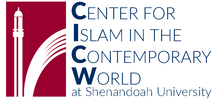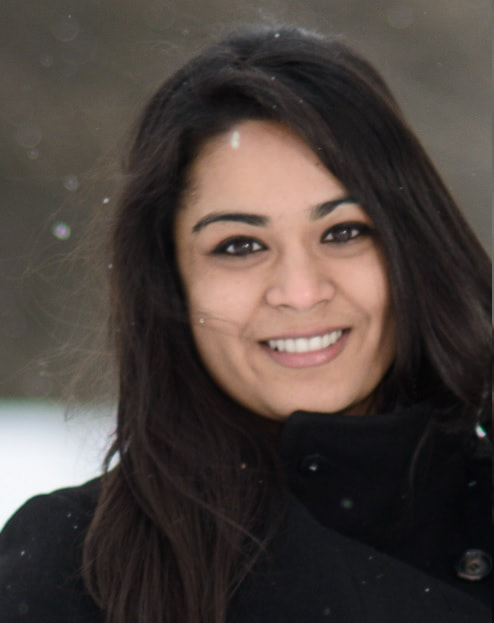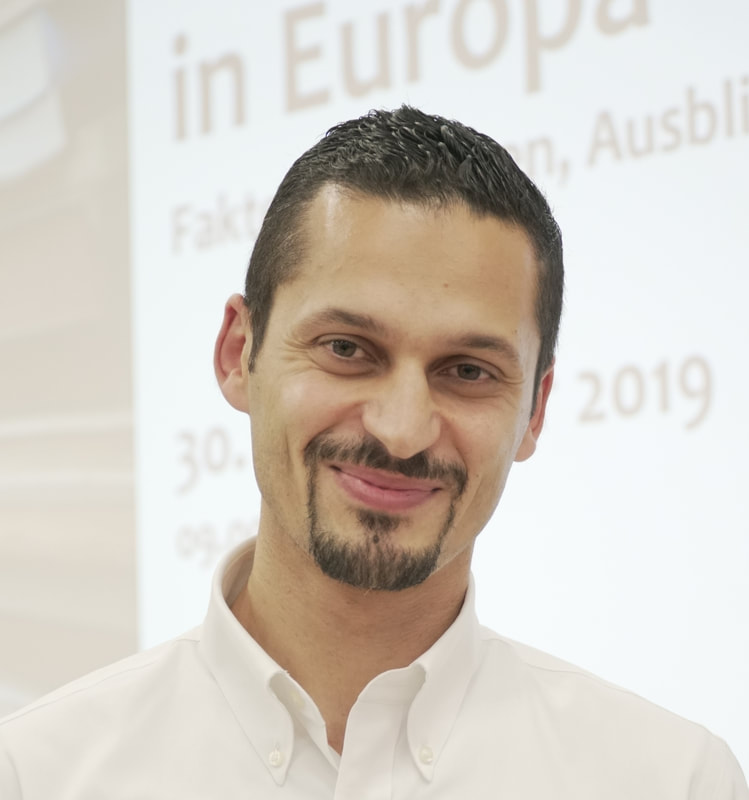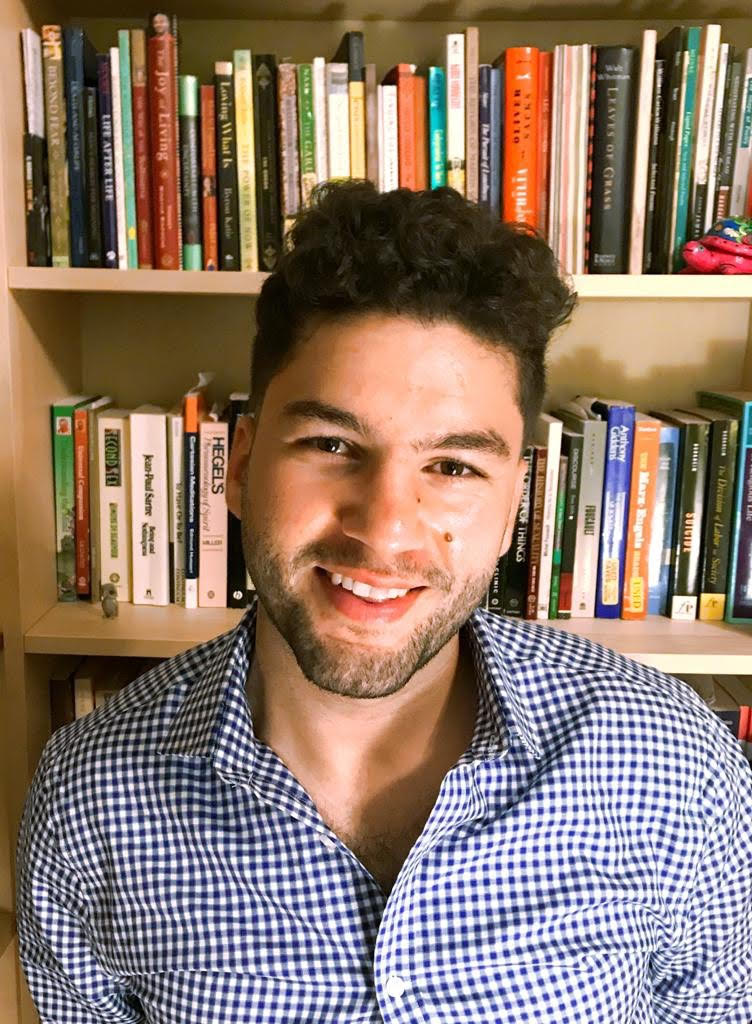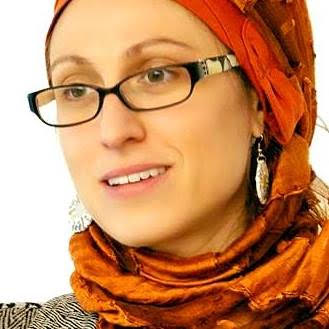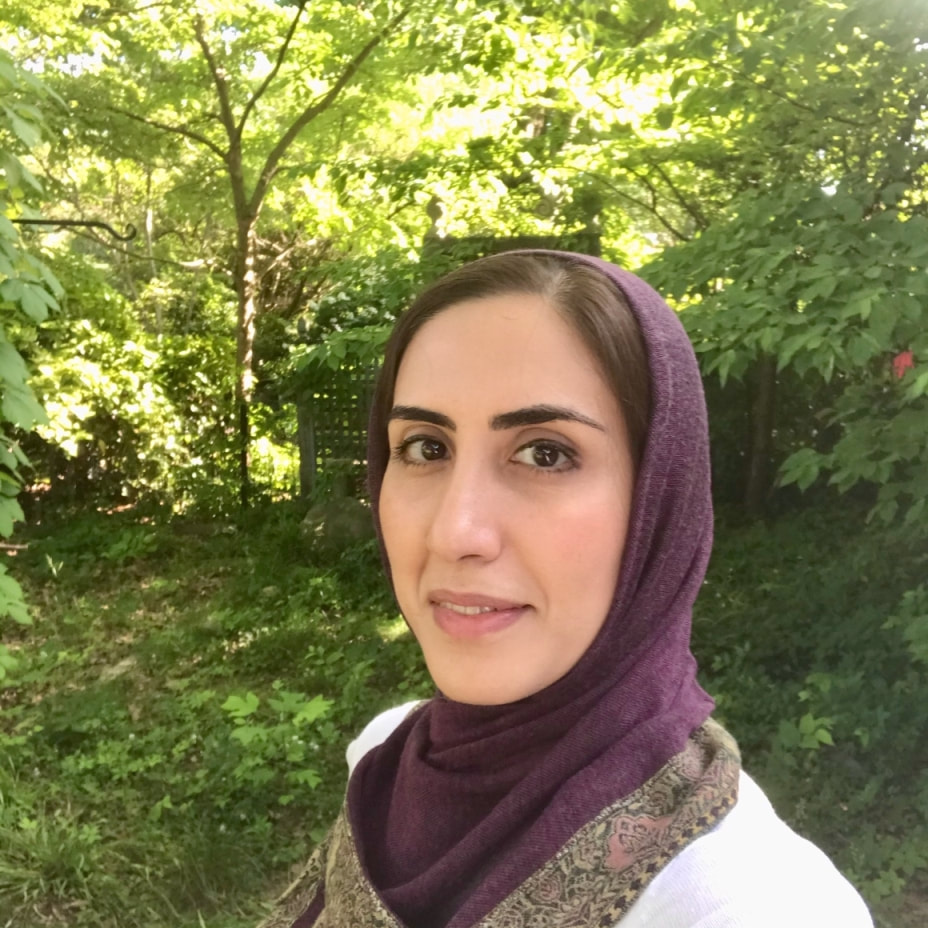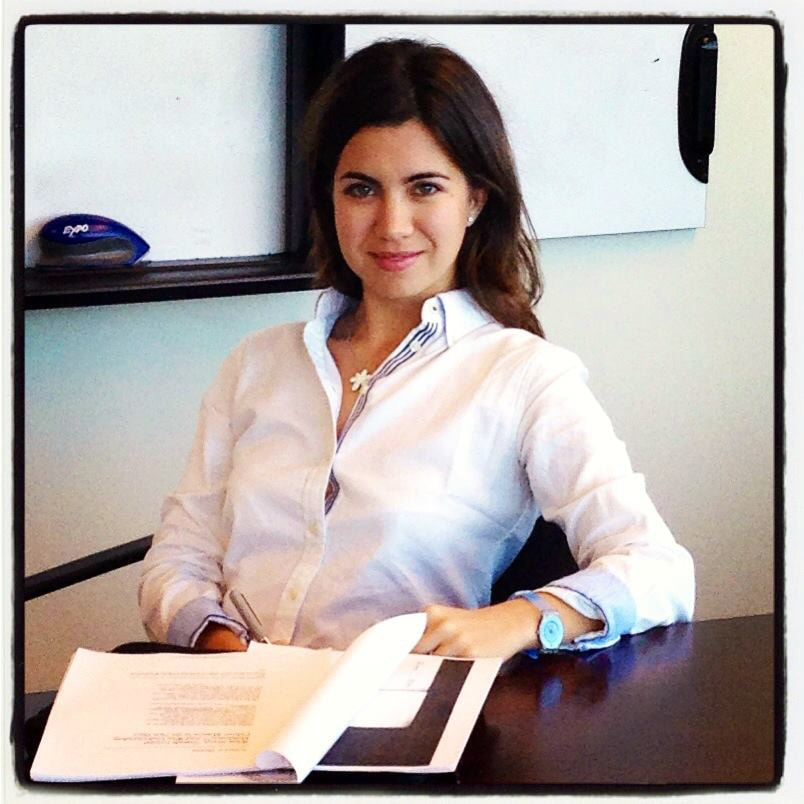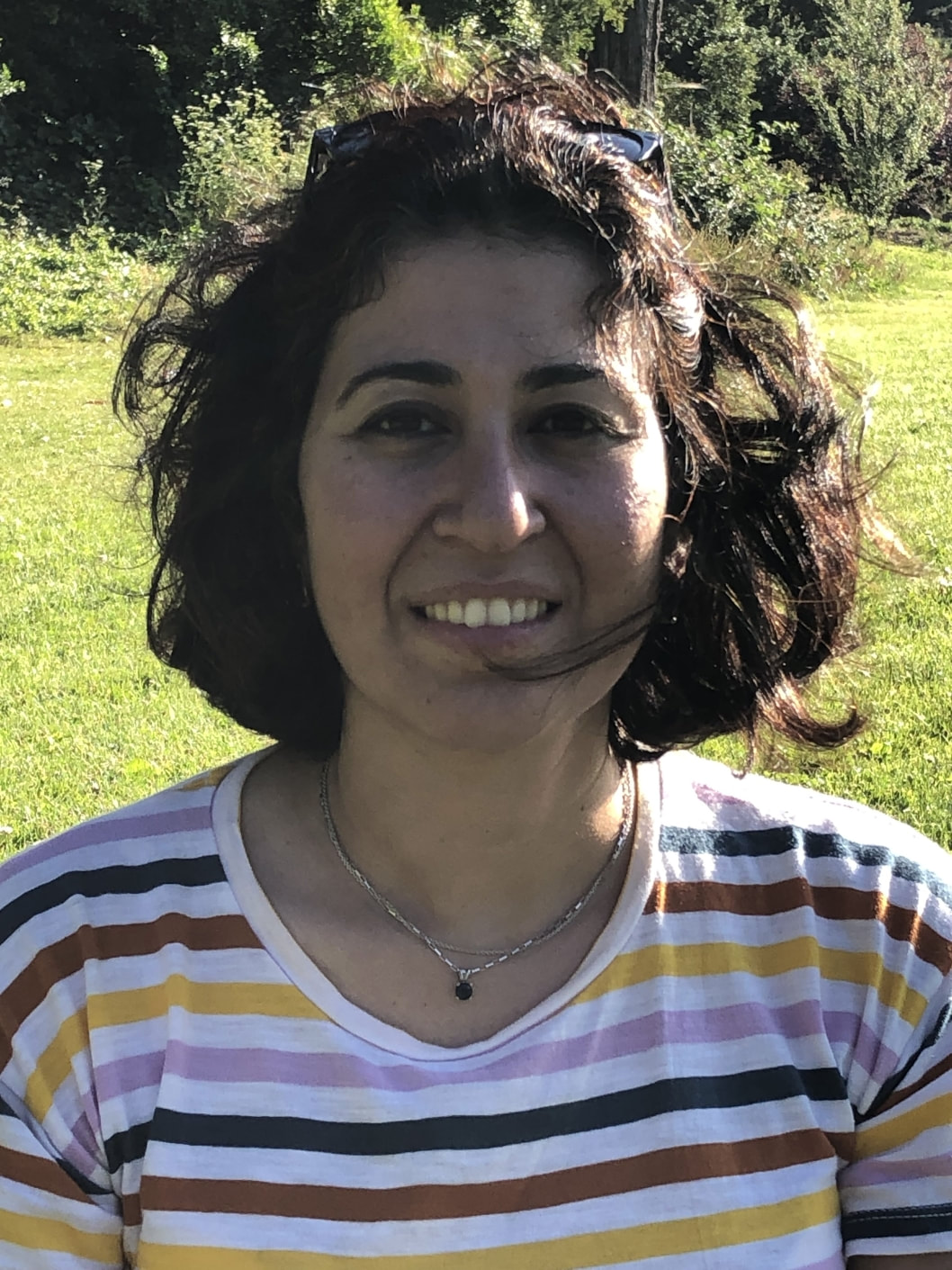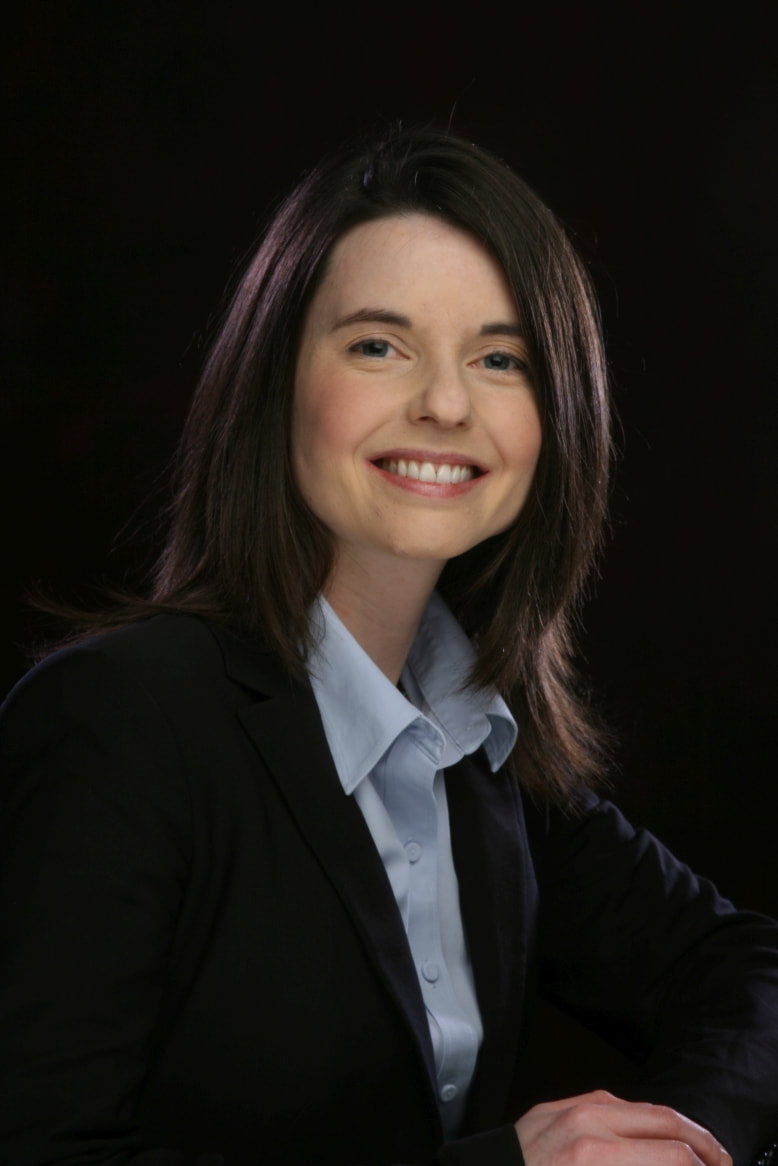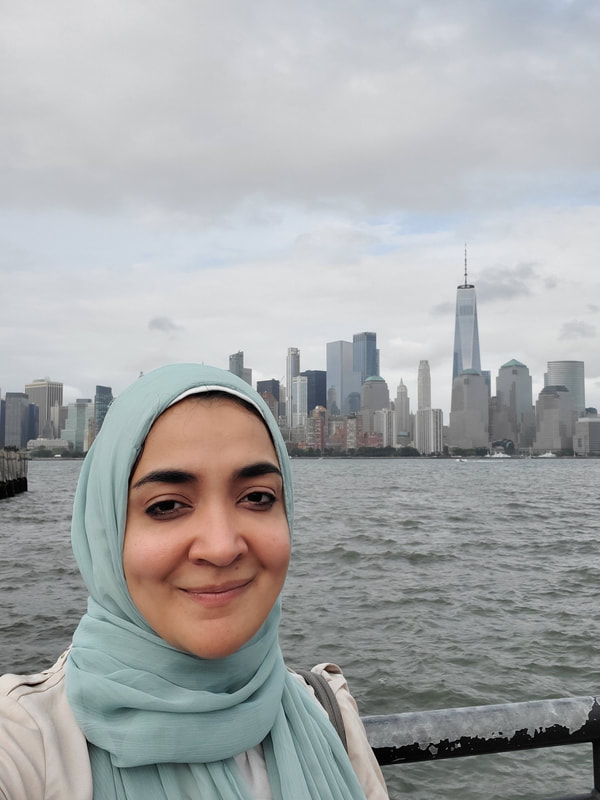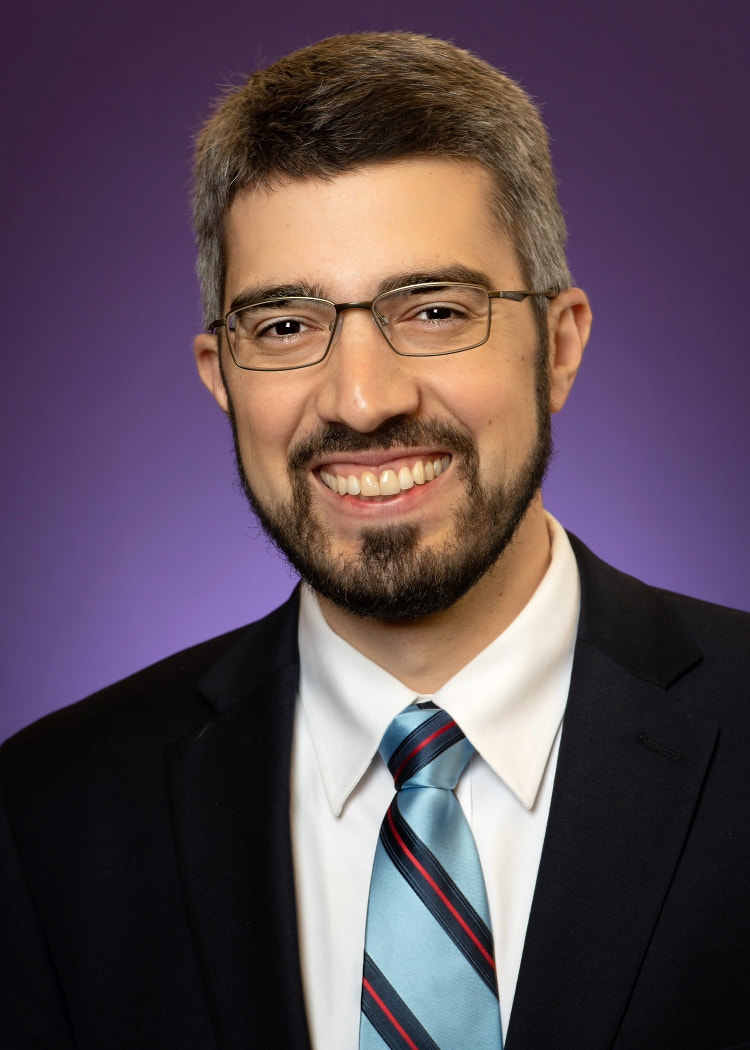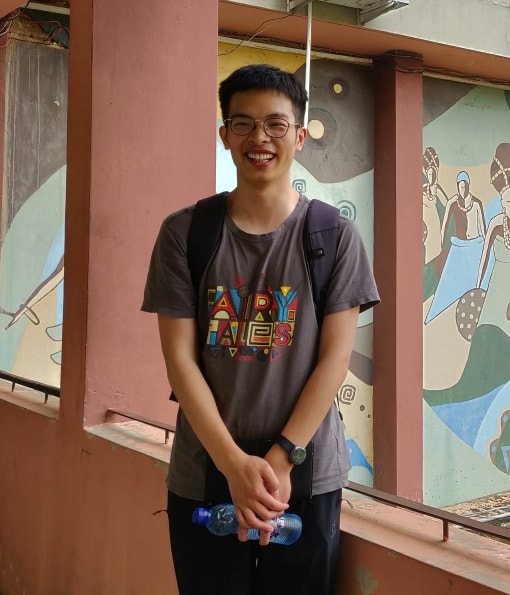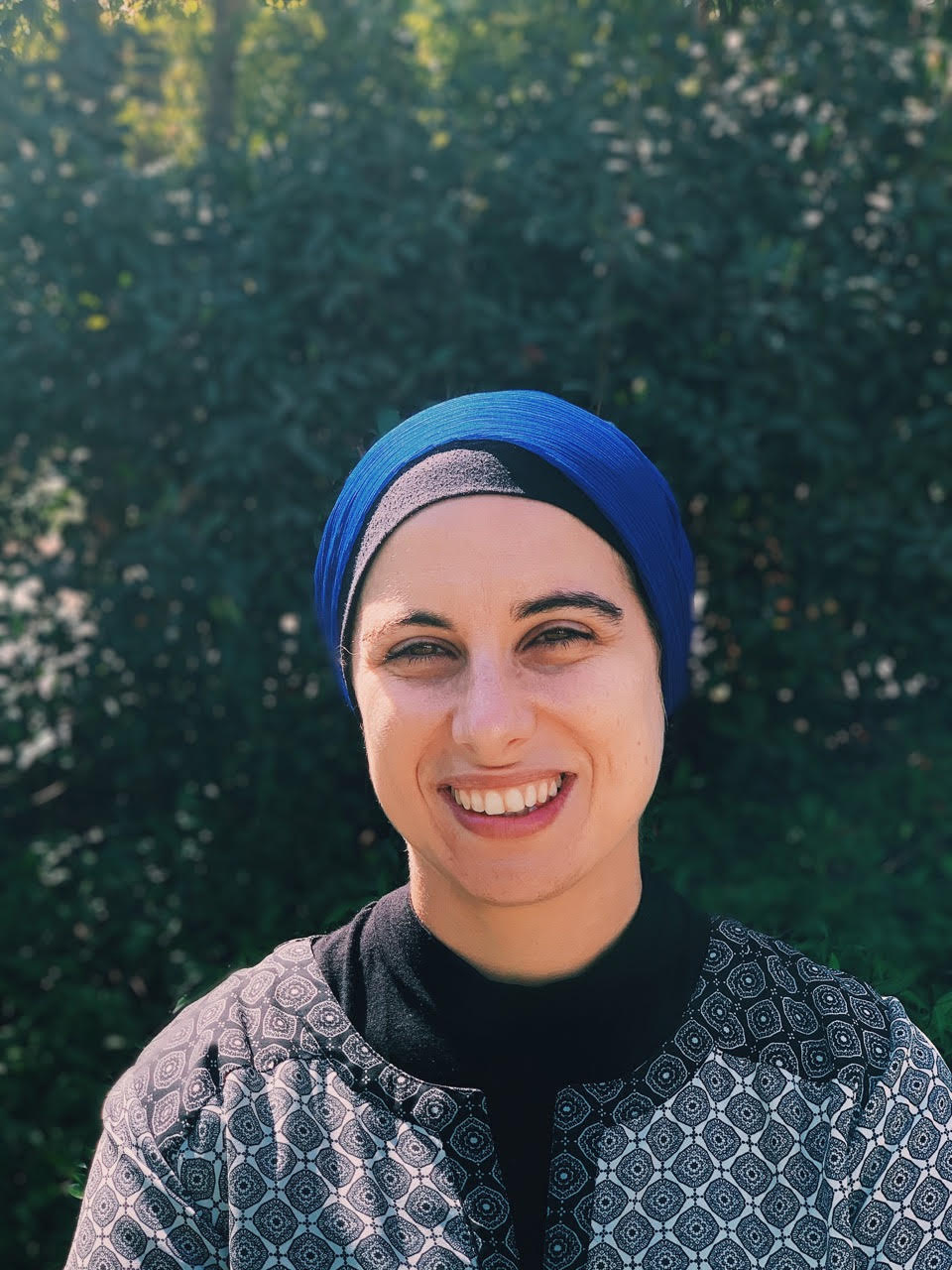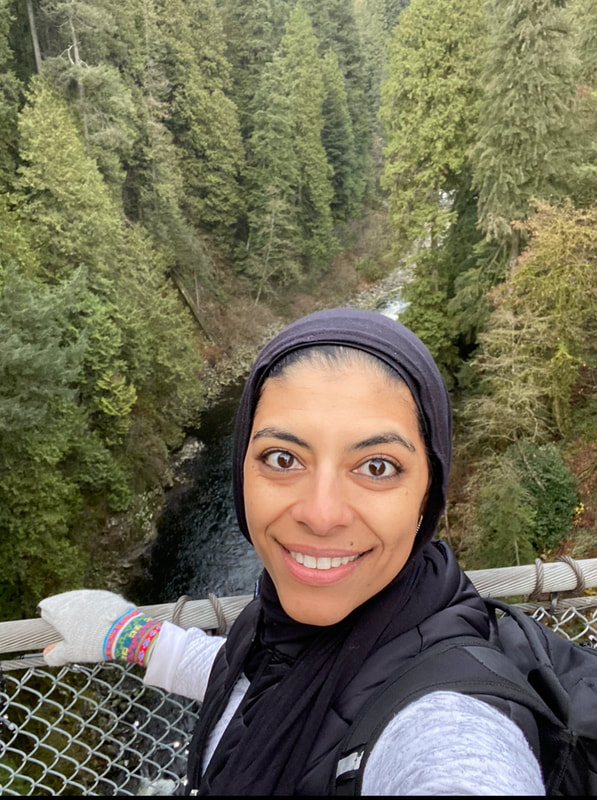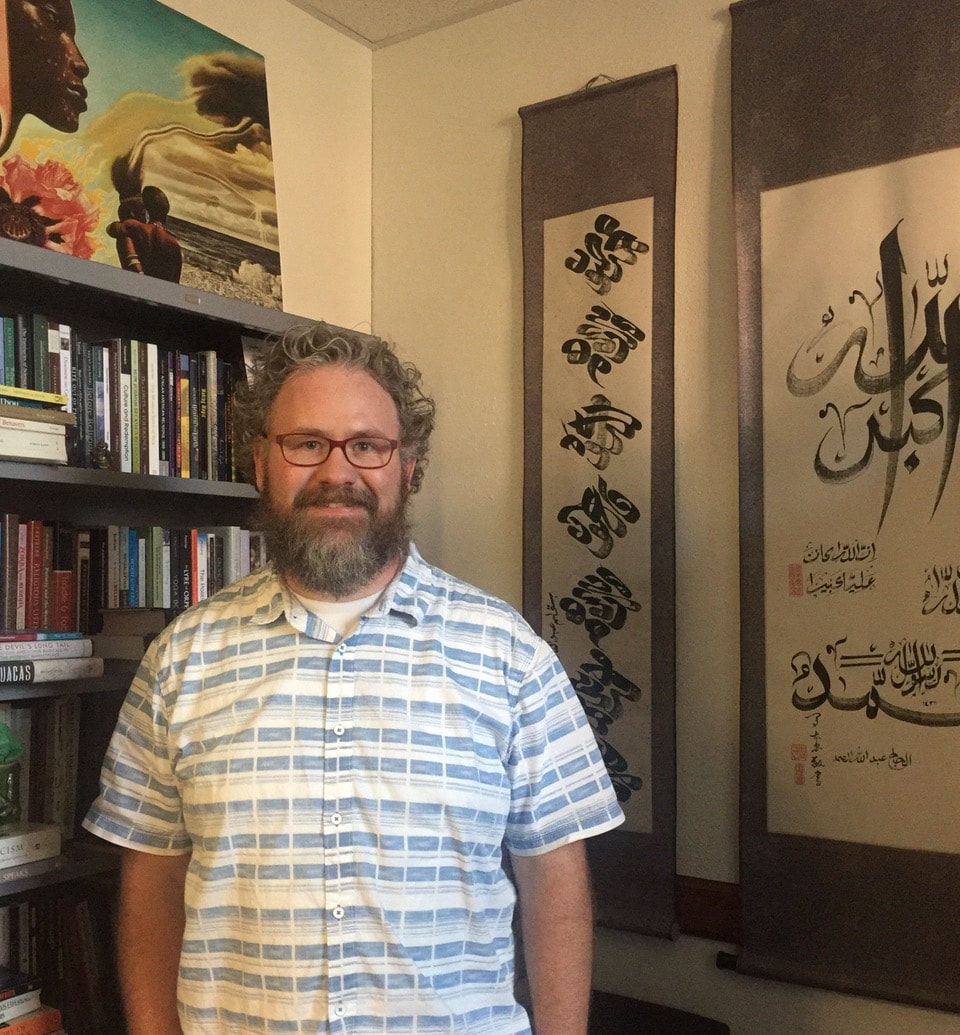2020 GRANT RECIPIENTS
This year's grants have been awarded under our "Islam on the Edges" and "Faith-Based Pedagogy" research programs. We are honored to have been able to award research grants to such an accomplished and diverse group of scholars and researchers. To learn more about "Islam on the Edges," please click here.
Samah ChoudhurySamah Choudhury is an incoming Assistant Professor in the department of Philosophy and Religion at Ithaca College. Her research surrounds American Muslim humor as it relates to formations of race and racialization, Muslim masculinities, and secularism in the United States. She holds her Ph.D. in Islamic Studies from UNC Chapel Hill.
Cultural Productions of Humor among American Muslims My research analyzes contemporary cultural productions of humor among American Muslims and the politics of social legibility that they enact. I focus particularly on how Islam and Muslims are articulated through the medium of standup comedy – a highly staged and embodied genre that provides insight into the ways that Islam finds recognition (and becomes obscured) through discourses of race, gender, affect, and American secularism. What ultimately gets cultivated on stage, I find, is an escape from visions of “that” violent, duplicitous, and sexually perverse Muslim through a self-situating that collapses race, racialization, gender, and sexual proclivities into a category made legible within mainstreamed U.S. progressivism. Here, Islam is privatized and a matter of internal belief. It reads interchangeably as race, culture, and ethnicity and is indicative of a politically muted categorical difference, such that it can be accommodated and contained under a broader secular hegemon of multi-cultural diversity. |
Farid HafezFarid Hafez is currently Senior Researcher at University of Salzburg and Senior Research Fellow at Georgetown University’s The Bridge Initiative. In 2017, he was Fulbright visiting professor at University of California, Berkeley. Since 2010, Hafez has been editor of the Islamophobia Studies Yearbook, and since 2015 co-editor of the annual European Islamophobia Report. He has received the Bruno Kreisky Award for the political book of the year, for his anthology Islamophobia in Austria (co-ed. with John Bunzl) and published more than 100 books and articles, including in high-ranking academic journals. His research interests focus on racism, Muslim minorities and far-right parties.
Colonial Governance of Islam on the Edge: The Austro-Hungarian Experience with Muslims in Bosnia and Herzegovina My interest is to explore the governance of Bosnia and Hercegovina from a critical perspective of colonial governance, analyzing questions of power and cultural dominance. I am also interested in putting this in the context of Bosnian Muslims’ reactions to colonial practices of the Austro-Hungarian politics, which have been widely studied. At the same time, I am especially interested in putting this in a conversation with current contentions in the governance of Islam in Austria, which has been my area of research in the last ten years. Here, I want to discuss (post)colonial (dis)continuities in regard to the governance of Islam in the then-monarchy and today’s Austria. |
Mohamad JaradaMohamad Jarada is a Ph.D. Candidate in the Department of Anthropology at the University of California, Berkeley. He received a B.A. in anthropology at Berkeley and a M.T.S. in philosophy and theology at Harvard Divinity School. Mohamad’s research concerns Islam and Muslims in the United States. In particular, he focuses on how the Islamic tradition, its sciences and jurisprudence, are made intelligible and reinterpreted when confronted with legal, political, and social forces that are inimical to its development and transmission. His research has been funded and recognized by the Wenner-Gren Foundation, Ford Foundation, Social Science Research Council (SSRC), and other granting units across the University of California, Berkeley.
His dissertation project, entitled Who is the Subject of Civil Rights? Race, Islam, and Security in the United States, examines how Muslim American communities in the American South are renegotiating their relationship to security practices, law enforcement agencies, and surveillance programs, and confronting their attendant logics of criminalization and racialization. His research draws on a long-term engagement with Muslim American communities in NC that includes sixteen months of field research with mosques, political organizations and coalitions, and security and legal experts in the American South. It attends to the ways Muslim American communities are contending with demands for security and protections from their congregants against hate violence and the debated resources, agencies, and institutions employed to guarantee the protection and security of their corporeal livelihood as well as the practice, education, and transmission of the Islamic tradition. |
Celene IbrahimCelene Ibrahim is the author of Women and Gender in the Qur'an (Oxford University Press, 2020) and the editor of One Nation, Indivisible: Seeking Liberty and Justice from the Pulpit to the Streets (Wipf & Stock Publishers, 2019). Her next book, Monotheism in Theory and Praxis: An Islamic Perspective on the Potentials and Limits of Human Knowing, is forthcoming with Cambridge University Press. She holds a PhD in Arabic and Islamic Civilizations and a master’s degree in Women's and Gender Studies and Near Eastern and Judaic Studies from Brandeis University, an MDiv from Harvard Divinity School, and a bachelor's degree from Princeton University. Dr. Ibrahim is a faculty member in the Department of Religious Studies and Philosophy at Groton School where she offers courses in comparative religion, ethics, and women’s studies.
Muslim Women Religious Scholars in the United States The contemporary period has seen a rise in the visibility of Muslim women religious scholars in the United States. Drawing on conversations with over two dozen of the leading Muslim women scholars in the United States, specifically those whose primary profession entails teaching the Islamic sciences in religious contexts, this research assesses trends in women’s religious leadership, scholarship, and mentorship of students of Islamic knowledge. The paper also highlights trends that can inform the development of seminary programs wherein aspiring women scholars are preparing for communal leadership roles. Women scholars may not have quite the visibility that men in the field have; nonetheless, they constitute an important demographic in the transmission of tradition, the formation of pious discourses, and the articulation of new communal norms in the North American context. |
Samaneh OladiSamaneh Oladi Ghadikolaei is an Assistant Professor in the School of Word Studies, at Virginia Commonwealth University. Dr. Oladi holds an M.A. in Global and International Studies, and a Ph.D. in Religious Studies from the University of California, Santa Barbara. Dr. Oladi’s current research looks at the evolving roles of women as religious authorities and producers of Islamic knowledge, addressing how their scholarship challenges patriarchal interpretations of sacred scriptures. Dr. Oladi is currently working on a manuscript that looks at Muslim women’s religious activism and its impact on bridging the gap between Islamic jurisprudence and gender justice.
In Search of Divine Justice: Iranian Women's Sacred Activism This project looks at Muslim women’s religious activism and the extent to which their involvement in production of religious knowledge is advancing gender justice within the Shiʿi tradition. I analyze how Iranian women are employing an indigenous approach to reform in order to transform the discourse on women and Islam. Drawing on case study, I argue that female religious activists not only struggle against patriarchy and conventional frameworks, they also cultivate a distinctively feminine hermeneutic that poses a challenge to both Western secularism and Islamic orthodoxy. Such an approach to achieving gender justice is an example of a contemporary religious movement increasingly grounded in local tradition as it shifts away from secularism to religious egalitarianism. |
Tatiana RabinovichTatiana Rabinovich received her PhD in Middle Eastern Studies from the University of Arizona and is currently serving as a postdoctoral teaching scholar in Interdisciplinary Studies Program at North Carolina State University. In her work, she ethnographically examines how working-class pious Muslim women in urban Russia respond to the ongoing socioeconomic crisis and political volatility by volunteering, caretaking, and honing their religious knowledge. The women’s ethical labor of self- and other-care points to the emergent solidarities within and outside of the Muslim community, which allow its members to flourish in spite of the uncertainty and hardship.
Muslim Women, Muhtasibat, in Russia Based on fieldwork in St. Petersburg between 2015 and 2017, the proposed project examines how through volunteer activities low-wage devout Muslim women participated in the establishment and running of an Islamic organization called Muhtasibat. A part of the Spiritual Board of Muslims of the Russian Federation, this top-down male-dominated organization promotes Islam through cultural and educational activities, collaboration with other state institutions, and preparation of religious cadre to serve the needs of local Muslim communities. I demonstrate how by mobilizing their time, resources, and labor, Muslim women engaged in religious place making in St. Petersburg amid the economic downturn and political uncertainty. In particular, I explore how they debated the meanings and trajectories of their work, foregrounding the political dimensions of their labor to carve a space for women in the male-run organization and for Muslims in the non-Muslim city. |
May KosbaMay Kosba is a doctoral student in Historical and Cultural Studies of Religion at the Graduate Theological Union (GTU) in Berkeley, CA. She holds a B.A. in Accounting (English section) from Ain Shams University in Cairo, Egypt, and an M.A. in Islamic Studies from the Center for Islamic Studies at the GTU. Centering Black experience and epistemology, her research investigates how Egyptian and African/Black anti-colonial literary discourses have dealt with issues of race and white supremacy. She has recently published a book chapter adapted from her M.A. thesis as a part of an edited volume on Islamophobia in Muslim Majority Societies entitled, “Paradoxical Islamophobia and post-colonial cultural nationalism in post-revolutionary Egypt.”
Egyptian and African/Black anti-colonial literary discourses on race and white supremacy in the nineteenth and twentieth centuries This research broadly questions issues of race and anti-Blackness in Arab Muslim cultures, the ideology of Arabic as a language, how it contributes to Arab and Muslim subject formation, and how it informs notions of race, identity, and culture. On a particular level, my research investigates how nineteenth and twentieth-century Egyptian and African/Black anti-colonial literary discourses have dealt with issues of race and white supremacy. This research seeks to disentangle the triangulated effects of Islam, Arabness, and anti-colonial nationalism in shaping Egyptian views of race and Blackness, as well as Egyptian proximity to Africa and the African Diaspora. Islam is a dominant faith tradition in Egypt and therefore deeply shapes Egyptian views of self and other. In a postcolonial conjuncture, this research is concerned with how Islam and Arabness inform Egyptians’ perception of slavery, race, and colorism, from both ideological and practical perspectives. |
Lindsay BensteadLindsay J. Benstead is Associate Professor of Political Science in the Mark O. Hatfield School of Government and Director of the Middle East Studies Center (MESC) at Portland State University. She served as Fellow in the Middle East Program at the Woodrow Wilson International Center for Scholars in Washington, DC and Kuwait Visiting Professor at SciencesPo in Paris. She holds a Ph.D. in Public Policy and Political Science from the University of Michigan in Ann Arbor and served as a doctoral fellow at Yale University and a post-doctoral fellow at Princeton University. For more on her research, see https://pdx.academia.edu/LindsayBenstead.
Islam on the Edges: Religious Beliefs Among Somali Bantu in Southern Somalia and the Diaspora Located at the Edges of the Muslim World, Somalia has been the subject of limited research. Its population is often considered homogenous, owing to its Sunni Muslim population. Yet ethnically—and in terms of religious practice—Somali society is complex. The Jubba regions are the homeland of the Bantu who may make up as much as 40 percent of Somalia’s population. While the Bantu are forced to adhere to Al-Shabaab’s edicts, their vibrant religious expressions—many of which are repressed—are examples of the dynamism and uniqueness of global Islam. Drawing on a face-to-face survey of 139 Somali minority households that had been displaced from the Al-Shabaab-held territories, Daniel Van Lehman and I explore this religious practice. We argue that an end to the civil war is necessary to safeguard the human rights of all Somalis and allow the Bantu to practice their religion according to their own culture and convictions. |
Sara O. AhmedSara O. Ahmed is a PhD student in Anthropology and Education at Teachers College, Columbia University. She holds an Ed.M. in International Education Policy from the Harvard Graduate School of Education. In 2013, she co-founded Elm International School in Alexandria, Egypt that fosters student centered education, technology as a tool, and fostering international mindedness while being locally rooted. Her research interests include global citizenship education, education in migration, digital ethnography, Islamic and Middle Eastern culture and history, research methods to gauge cultural differences, and culturally sensitive instruction.
Women's Worlds How have Arab & Muslim-majority women-only Facebook groups created new “women’s worlds” (Abu-Lughod, 2013)? Additionally, how has the digital space allowed for a different kind of human interaction, as did the print revolution? Moderated Facebook groups create communities where women can ask very personal questions, share stories anonymously, and crowd source advice and empathy in ways an advice column could not. This space may serve as a refuge for women to share experience with pseudo-anonymity rendering it a safe space that is distanced from how these women might act in physical spaces, or other public online spaces. The content in these spaces could provide a challenge to some of the dominant narratives around Muslim women who can share their “dreams, desires, anger, and disappointments—in their own words” (Abu-Lughod, 2013, p5) quite literally within these spaces. This project explores this as a space for globally-connected Muslim women. |
Samuel RossSamuel Ross is an Assistant Professor of Religion at Texas Christian University. His research focuses on the history of Qur'an commentary literature (tafsīr) and the reception of the Bible in the Muslim world. His book manuscript, The Biblical Turn in the Qur’an Commentary Tradition, was fortunate to win the 2019 British Association for Islamic Studies (BRAIS) – De Gruyter Prize in the Study of Islam and the Muslim World. He received his PhD from Yale University in 2018 and currently serves on the steering committee of the American Academy of Religion’s Qur’an Unit.
Biblical Turn in the Study of the Qur'an In my dissertation I explored a significant development in the history of tafsīr and Jewish-Christian-Muslim relations more broadly: the direct engagement of modern Qur’an commentators with the texts of the Hebrew Bible and New Testament. I refer to this opening in my research as “the biblical turn.” After conducting a longitudinal survey of more than 150 Qur’an commentaries from throughout Islamic history, I narrowed my study to a representative sample of modern Arab commentators to better describe this development and to assess its impact. CICW’s generous grant will support the expansion of my study to include Qur’an commentators living outside of the Arab world especially in South and Southeast Asia, where nearly half of the Muslim world lives today. I plan to incorporate the results of this research into an additional chapter in my current book project, which is under contract with De Gruyter |
Deng ZheyuanDeng Zheyuan is a third-year PhD student at the Department of Religion, University of Florida. He earned his B.A. in history and Arabic (2015) and M.A. in African history (2018) from Peking University, China. His M. A. thesis is about the history of collecting and studying Arabic manuscripts in Nigeria during the late colonial and early post-colonial eras. His current research focuses on Islamic law in Yorubaland, especially during the colonial time. He also has broad interests in lived Islam, as well as religious encounters, specifically between Islam and so-called “traditional religions”.
Islamic Law in Southwestern Nigeria My project looks at sharīʿa from two perspectives by employing historical anthropological approaches. First, this project will explore sharīʿa as a space of tensions and struggles between various actors, including but not limited to different groups of Muslims, colonial and postcolonial governments, law practitioners, and laypersons. Second, sharīʿa is also a part of the lived religion for many Muslims. Inspired by the useful approach of lived religion, this project tries to answer questions, such as how Muslims in Southwestern Nigeria debate and produce various sharīʿa scripts, and how these forming/formed scripts influence local Muslims’ everyday life. During this special time, I plan to hire Research Assistants to help me consult colonial archives in Ibadan and Kaduna, Nigeria. |
Rose AslanRose Aslan, Ph.D., is an Associate Professor of Global Islam in the Department of Religion at California Lutheran University. Her research focuses on the study of the material culture of religion, intersecting around ritual, sacred space, and embodiment among various Muslim communities. She received her Ph.D. in Religious Studies from UNC-Chapel Hill and her M.A. in Arabic and Islamic Studies from the American University in Cairo. She is completing her book Muslim Prayer in American Public Life (Oxford University Press). The book examines how U.S. Muslims adapt their prayer practices in public settings, how they navigate the issue of religious accommodations in schools, universities, and the workplace, and how prayer is understood and depicted by the media and entertainment industry.
Muslim Prayer in American Public Life This project will add a new chapter to her forthcoming book about the debates and issues that have arisen during the COVID-19 crisis, examining how social distancing regulations and public health concerns have changed the way Muslims think of and engage in communal rituals. The chapter will focus on the ways that U.S. Muslims have taken their ritual lives online and how they are gradually returning to prayer in mosques and communal settings. The research draws upon primary sources, such as fatwas issued by US-based scholars, religious opinions issued by Muslim organizations and mosques, as well as discussions on social media sites among U.S. Muslims. It highlights how U.S. Muslims navigate between their interpretation of Islamic law, the desire to engage in and maintain a sense of community, and their adherence to public health ordinances and guidelines. |
Nancy KhalilNancy A. Khalil completed her PhD in Anthropology at Harvard University and Postdoctoral Fellowships at Yale’s Center on Race, Indigeneity and Transnational Migration and the University of Michigan, Ann Arbor's Collegiate Postdoctoral Fellow's Program. Her research focuses on the politics of American Islam with an emphasis on the profession of the Imam in America. Her academic work has been supported by several foundations, including the National Science Foundation, Social Science Research Council, Bucerius Zeit-Stiftung, MSA National, IIIT, and the Islamic Scholarship Fund. She has a particular interest in building bridges between activists and academics. Prior to her doctoral studies, she worked as Muslim Chaplain at Wellesley College and Advisor to their Multi-faith Living and Learning Community. She is co-founder and board member of the Muslim Justice League, a board member of Islamic Relief USA, and currently an Assistant Professor in the department of American Culture at the University of Michigan, Ann Arbor.
Imams are US My forthcoming manuscript project broadly looks at the politics of being and becoming an imam in the United States. How are imams authorized and recognized in the absence of formal regulatory bodies? Who are the stakeholders in the profession of the imam and what are the implications of the regulatory vacuum on them? The project is based off several years of fieldwork in cities across the nation at emerging Islamic seminaries and with individuals who identify as imams. The book is an ethnography of their lives, their profession, and its boundaries. It engages debates on religious freedom, religious authority, and Islam in the US, and is under contract with Stanford University Press. The manuscript is drafted, except one chapter. In recent years, the #metoo movement has reverberated in the Muslim community leading to several exposures, and subsequent online debates on men perceived as scholars, leaders, and/or imams in the Muslim community implicated in actions that result in #metoo. The response has led to a surge in lack of trust of religious authority and a rising generation confused as to how to discern whom to spiritually trust. The generous support of CICW will help me complete the forthcoming chapter that focuses on this tension between leaders and those who follow(ed) them, trust, accountability and spiritual stability. |
Kristian PetersenKristian Petersen is Assistant Professor at Old Dominion University. He is the author of Interpreting Islam in China: Pilgrimage, Scripture, and Language in the Han Kitab (Oxford University Press, 2017); co-editor, with Christopher Cantwell, of Introductions to Digital Humanities: Research Methods in the Study of Religion (De Gruyter. 2020); and editor of two forthcoming 2021 volumes, Muslims in the Movies: A Global Anthology (ILEX Foundation and Harvard University Press), and New Approaches to Islam in Film (Routledge). He is the curator of the Women of Islamic Studies project, and co-host of the New Books in Islamic Studies podcast.
The Cinematic Lives of Muslims My book project, The Cinematic Lives of Muslims, explores how media makers and audiences disrupt the presiding representational patterns of Muslims and Islam in Euro-American contexts through their production, circulation, and engagement with film. For this research period I hope to develop one section of the book on “Muslim Movie Stars,” which demonstrates how celebrity status enables Muslim stars to combat harmful depictions of their community while simultaneously pushing back against industry norms that discriminate against creatives of color. This novel approach allows us to consider Muslim stardom and fame as a means for the articulation of contemporary Muslim identities and the development of new media-centered Muslim publics. I employ this theoretical framework for a comparison of four prominent Muslim actors, American actor Mahershala Ali, British actor Riz Ahmed, and French acting couple Tahar Rahim and Leïla Bekhti. |
About our research grant program
Please check our website periodically for calls for research grants and fellowships. We do not accept unsolicited proposals. For further information, please email us at [email protected]. Thank you!
Our research programs
Islam on the Edges |
Interpreting the Qur'an in the Contemporary World
|
